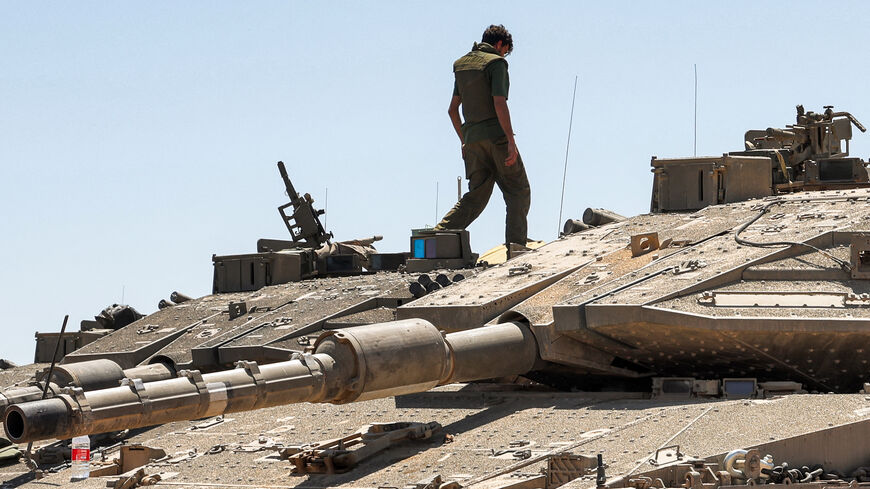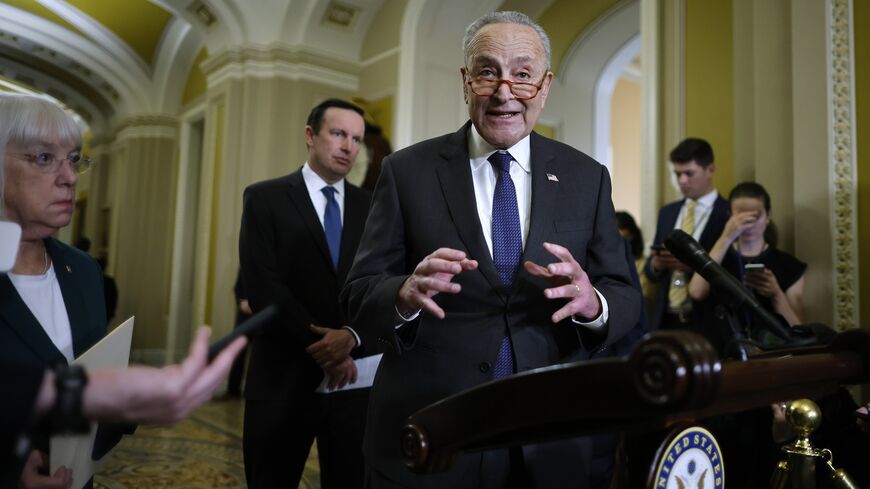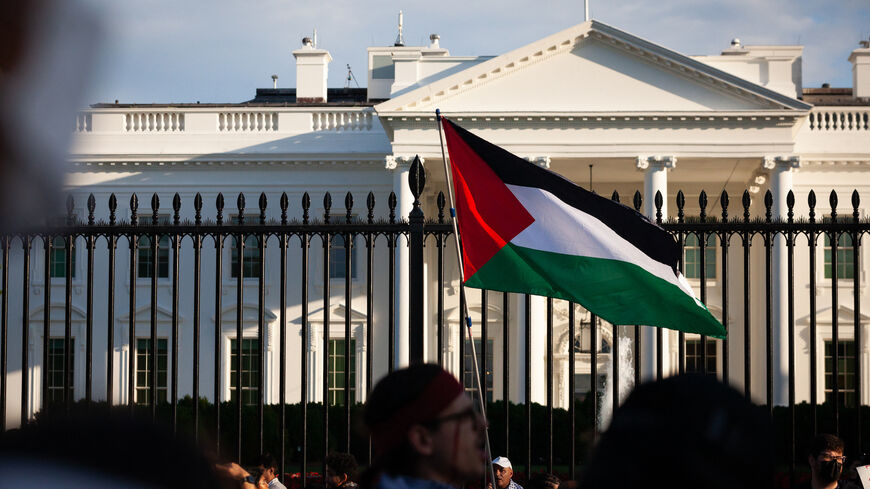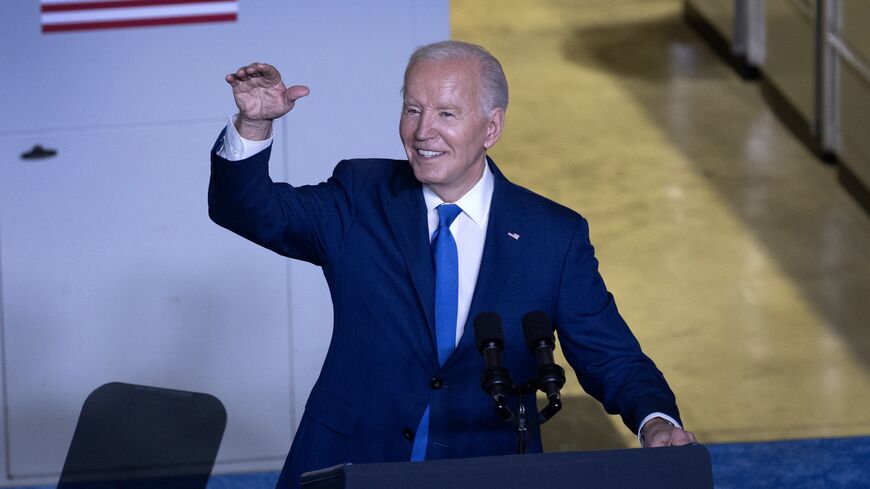Biden approaches 'red line' with Netanyahu 7 months into Gaza war
After months spent warning Israel against launching an assault in Rafah, Biden said such an operation would result in the US blocking arms shipments to the Jewish state.
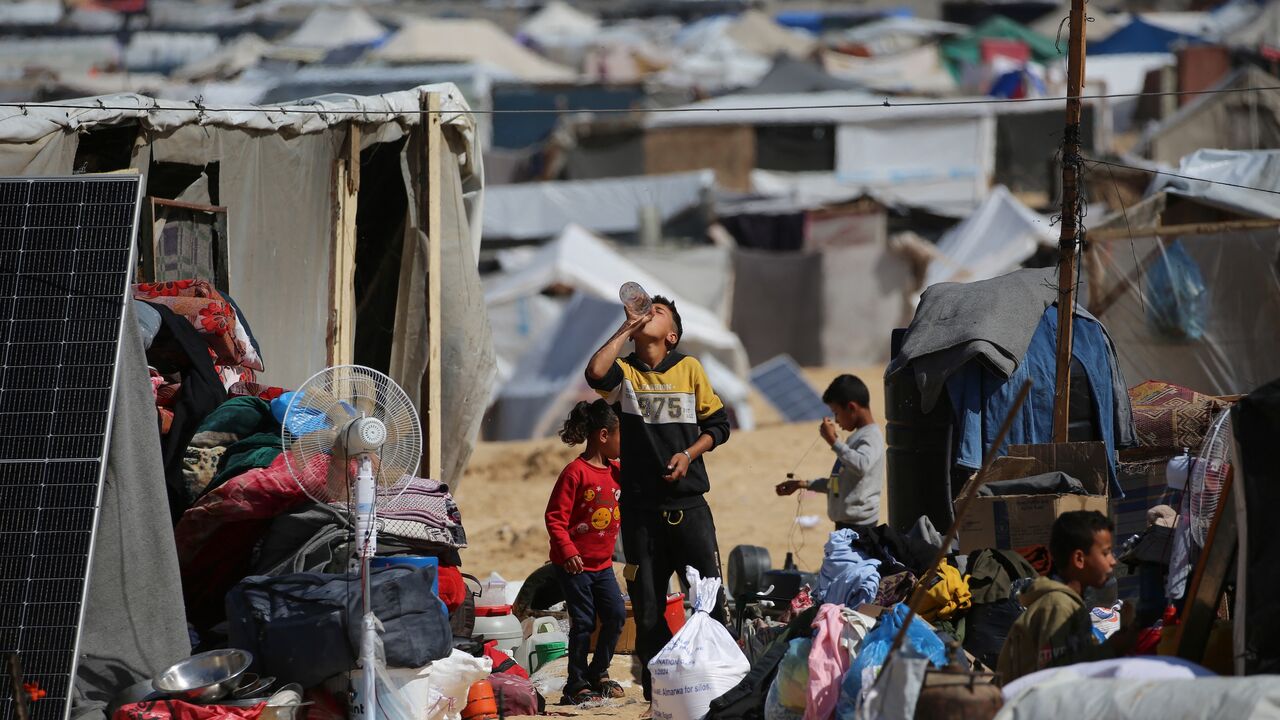
You're reading an excerpt from The Takeaway, where we break down the latest in US-Middle East diplomacy. To read the full newsletter, sign up here.
WASHINGTON — Two months after President Joe Biden said an invasion of Rafah would be a “red line,” he has for the first time laid out the consequences should Israel cross it.
Biden said in a CNN interview Wednesday that he would stop sending offensive weapons to Israel if Prime Minister Benjamin Netanyahu ordered a full-scale invasion of the Gaza Strip’s southernmost city.
“If they go into Rafah, I’m not supplying the weapons that have been used historically to deal with Rafah, to deal with the cities — that deal with that problem,” Biden said.
“It’s just wrong. We’re not going to — we’re not going to supply the weapons and artillery shells used,” Biden said, adding that the flow of defensive weapons would continue regardless of a Rafah invasion.
The United States has sent tens of thousands of weapons to Israel since Oct. 7, when Hamas-led militants killed around 1,200 people and captured some 250 others in an unprecedented cross-border attack. Israel’s counteroffensive in Gaza has since killed more than 34,500 people, the majority being women and children, according to the Health Ministry in the Hamas-run territory.
The comments marked a significant shift for Biden, who has been reluctant to leverage weapons transfers to Israel despite his increasing criticism over its military conduct in Gaza.
Matt Duss, a former adviser to Sen. Bernie Sanders who is now the executive vice president of the Center for International Policy think tank, welcomed what he described as a long overdue move on Biden’s part.
“I acknowledge that the president is shifting away from a very long-standing position on how the US-Israel relationship should work, and I think that's very much worth recognizing,” Duss said.
“The concern is — and I know some of the administration shares this — that the Israelis will kind of slow walk into Rafah and not make any huge moves that necessarily cross a red line. And then all of a sudden they're inside Rafah and calling the president's bluff,” Duss said.
"Limited" Rafah operation
Israeli tanks rolled into the outskirts of Rafah earlier this week to conduct what the Israel Defense Forces (IDF) described as a limited operation and not yet the major assault that Netanyahu has long threatened. The White House’s national security spokesperson, John Kirby, said Thursday that the United States would keep monitoring what Israelis told them was a “precise" and "short-duration” operation.
The densely populated city bordering Egypt is home to more than 1.4 million Palestinians, a majority of them previously displaced at least once by the seven-month war. An Israeli invasion into Rafah would leave them with nowhere safe to go, the United Nations and aid agencies have warned. More than 80,000 have fled since the Israeli military on Monday began issuing evacuation orders for certain neighborhoods.
IDF strikes have killed dozens of civilians in Rafah this week. But Biden framed his red line as an attack on “population centers,” suggesting he wouldn’t object to a more limited Israeli operation to eliminate Hamas fighters in Rafah.
"They haven't gotten into the population centers. What they did was right on the border, and it's causing problems with, right now, in terms of with Egypt," he said.
Aaron David Miller, a senior fellow at the Carnegie Endowment for International Peace and a former US State Department Middle East analyst, said US red lines with Israel have been known to turn pink.
“So far, the administration appears to at least describe the operation as limited, and I guess that's within the ballpark,” Miller said.
In another first this week, the Biden administration confirmed it paused a planned shipment of 3,500 air-to-ground munitions over concerns that Israel would move into Rafah without a credible plan to protect civilians.
The withholding may not be a one-off. The Biden administration is also reportedly reviewing other approved shipments to Israel, including Joint Direct Attack Munitions guidance kits that convert so-called dumb bombs into precision-guided weapons.
Asked if 2,000-pound American bombs had been used to kill Palestinian civilians, Biden said, “Civilians have been killed in Gaza as a consequence of those bombs and other ways in which they go after population centers.”
The admission comes as the State Department prepares to deliver a first-of-its-kind report to Congress on whether Israel has violated international humanitarian law (IHL) with US-provided weapons. Critics of Biden’s Gaza policy are bracing for a whitewash, but are hopeful the report will take into account his public acknowledgement that US-supplied bombs are responsible for civilian deaths.
“The notion that in the middle of everything that is going on right now, with Rafah in particular, that they could drop a report that says ‘no IHL violations’ would be another shot to the credibility of this administration when it comes to assessing Israel's actions,” said Josh Paul, a former State Department official who resigned in protest in October.
As part of the report, the State Department must also formally assess whether Israel is in compliance with a section of the Foreign Assistance Act that says the United States cannot provide arms to a country that “prohibits or otherwise restricts, directly or indirectly, the transport or delivery of United States humanitarian assistance.”
Humanitarian organizations say Israel’s restrictions on aid reaching Gaza are in clear violation of the 1961 law.
Under US pressure, Israel promised to facilitate more aid access, including by opening the Erez crossing into northern Gaza, permitting the temporary use of Ashdod port in southern Israel and expanding the operational capacity of its existing aid access points.
But a month after Israeli strikes on a World Central Kitchen convoy killed a US citizen and six others, a coalition of aid groups said Tuesday there have been no meaningful improvements to aid access.
"Far from witnessing an improvement in access following Israel’s commitments, humanitarian actors are only expecting further challenges as Israel’s offensive on Rafah unfolds," said the coalition, which includes the Norwegian Refugee Council, Oxfam and Save the Children.
Israeli authorities continue to restrict the entry of aid into the north, with nearly half of humanitarian missions having been unable to pass through in the month of April, the organizations said. Aid groups also reported trucks being turned away at the Israeli-controlled Kerem Shalom crossing for no apparent reason.
Netanyahu has pledged to invade Rafah — the hub of the international community’s aid operations — regardless of whether a cease-fire deal is reached with Hamas. Experts have warned an all-out assault on the city would collapse what is already an insufficient aid operation in Gaza, where the United Nations says "full-blown famine" is underway in the north.
Israel closed Kerem Shalom for three days following a Hamas attack that killed four Israeli soldiers. Despite Israel's reopening of the crossing on Wednesday, Kirby told reporters aid has yet to resume flowing.
The Rafah crossing with Egypt has remained closed since the Israeli military seized control of the Gazan side on Tuesday. The World Health Organization said Wednesday that its health facilities in southern Gaza would run out of fuel within three days as a result.
The State Department has repeatedly called on Israel to do more to facilitate aid access. Spokesperson Matthew Miller criticized Wednesday what he described as a “fairly dramatic dip in the increase of humanitarian assistance."
"When it comes to the level of humanitarian assistance, the results as they are today are just unacceptable. There's no other way to put it," Miller said.



